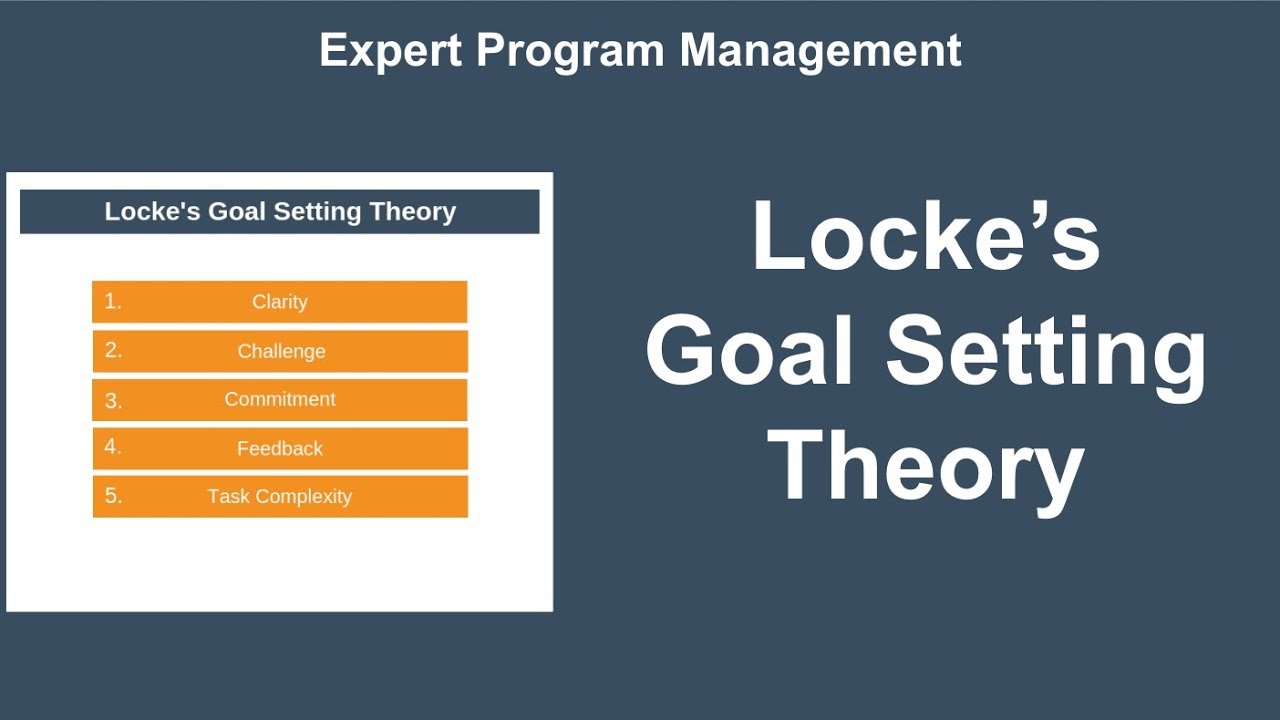In the pursuit of success, individuals often find themselves navigating through a myriad of challenges and uncertainties. Amidst this journey, the significance of setting goals cannot be overstated. Embedded within the fabric of psychology and management theory lies the potent framework known as Goal Setting Theory. This theory elucidates the profound impact that well-defined goals can have on motivation, performance, and ultimately, success. In this article, we delve into the depths of Goal Setting Theory, uncovering its principles, applications, and implications for personal and organizational achievement.
Understanding Goal Setting Theory:
At its core, Goal Setting Theory posits that establishing clear and specific objectives enhances motivation and performance. Proposed by Edwin Locke and Gary Latham in the 1960s, this theory emphasizes the importance of setting challenging yet attainable goals. According to Locke and Latham, goals serve as catalysts for directing effort, mobilizing resources, and fostering persistence in the face of obstacles. Moreover, the theory underscores the notion that feedback mechanisms play a pivotal role in refining goal pursuit strategies and optimizing performance outcomes.
Principles of Goal Setting:
- Specificity: Goals should be precise and unambiguous, leaving little room for interpretation. Specific goals provide a clear roadmap for action, guiding individuals towards desired outcomes with clarity and focus.
- Challenge: Setting goals that are sufficiently challenging yet achievable stimulates motivation and engenders a sense of accomplishment upon attainment. Moderate levels of difficulty inspire individuals to stretch their capabilities and unleash their full potential.
- Feedback: Regular feedback loops facilitate continuous improvement by offering insights into progress and areas for refinement. Constructive feedback fosters adaptive behavior, enabling individuals to adjust their strategies and stay on course towards goal attainment.
- Commitment: A strong commitment to goals imbues individuals with the resilience and determination needed to overcome setbacks and persevere in the face of adversity. Commitment cultivates a sense of accountability and ownership, fueling sustained efforts towards goal realization.
Applications of Goal Setting Theory:
- Personal Development: In the realm of personal growth and self-improvement, Goal Setting Theory serves as a guiding framework for individuals seeking to enhance their skills, cultivate new habits, and achieve meaningful milestones. Whether pursuing academic aspirations, fitness goals, or career objectives, the principles of goal setting provide a blueprint for success.
- Organizational Performance: Within organizational contexts, Goal Setting Theory holds profound implications for enhancing productivity, driving innovation, and fostering employee engagement. By aligning individual goals with organizational objectives, leaders can cultivate a culture of accountability and excellence, propelling their teams towards peak performance.
- Education and Learning: In educational settings, Goal Setting Theory informs instructional design practices aimed at maximizing student motivation and learning outcomes. By setting clear learning objectives and providing timely feedback, educators empower students to take ownership of their learning journey and strive for academic excellence.
Implications for Success:
Embracing Goal Setting Theory unlocks the door to unprecedented levels of achievement and fulfillment. By harnessing the power of goal setting, individuals and organizations alike can chart a course towards success that is defined by clarity, purpose, and relentless pursuit of excellence. Whether scaling the heights of personal aspirations or spearheading transformative initiatives on a global scale, the principles of Goal Setting Theory serve as a beacon of inspiration, guiding the way towards a brighter and more prosperous future.
Conclusion:
In the grand tapestry of human endeavor, goals serve as the threads that weave together dreams and realities. Grounded in the principles of clarity, challenge, and commitment, Goal Setting Theory illuminates the path to success with unparalleled clarity and conviction. As we embark on our respective journeys towards greatness, let us heed the wisdom of this transformative theory, embracing the power of goals to propel us towards heights yet unseen. For in the pursuit of our aspirations lies the promise of a tomorrow imbued with purpose, passion, and limitless possibility.

